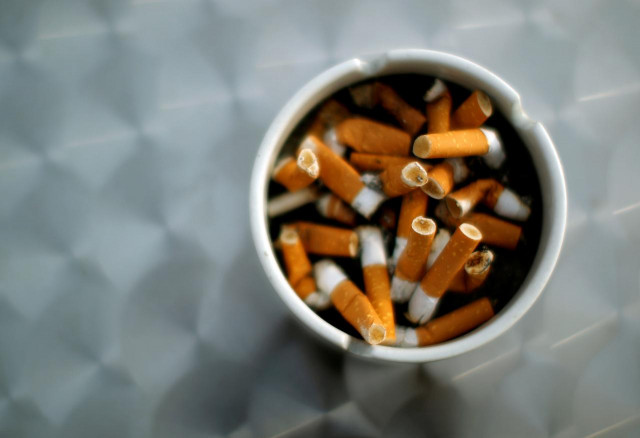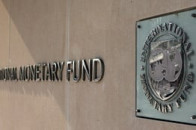PTI govt asked to strengthen cigarette tracking system
Anti-tobacco activists lament elimination of mobile app from system

A Reuters file photo showing ash tray with cigarette butts.
However, they were of the view that the Federal Board of Revenue (FBR) had awarded contract for running the track and trace system to an inexperienced company, which would stymie government efforts aimed at increasing revenue from the cigarette industry by controlling the sale of illicit cigarettes.
Talking to The Express Tribune, a representative of the Campaign for Tobacco-Free Kids Malik Imran said the track and trace system, which was introduced in 2017, was facing an uncertain future. “A powerful lobby has succeeded in eliminating the important feature of mobile application built for tracing the cigarette packs,” he alleged.
He pointed out that an internationally recognised Switzerland-based company had won bid for the track and trace system in 2017. However, instead of awarding the contract to it, bids were sought again and given to the company which eliminated the feature of mobile app.
“There will be a loophole in the verification system as a same tracing stamp can be placed on multiple packs,” he said, adding that it would be a technical way of avoiding health tax as companies could show a single pack under one stamp, despite selling multiple packs with the same mark.
He was of the view that the contract had been awarded to the company which lacked experience in the production line, adding that the mobile application would have provided a foolproof system for health tax collection.
He claimed that the volume of illicit cigarette sales in the entire country was not more than 10% of the total while the problem lay in tax collection.
“A comprehensive study was done in 2018 with samples from across the country and monitored by the World Health Organisation (WHO), which concluded that taxation was a problem,” he said.
He also said Pakistan had the cheapest prices of cigarettes in the region and cigarettes could be smuggled from here to other countries.
Pakistan National Heart Association General Secretary Sanaullah Ghumman urged the government to put in place the track and trace system in a transparent way for revenue collection from the tobacco industry.
“The government not only faced a loss of more than Rs150 billion due to the introduction of a third duty tier for cigarettes, but it also contributed to an increase in smoking, particularly among youth,” he pointed out.
Later, the government removed the third duty tier which he termed a positive move.
“Introduction of the track and trace system for collecting taxes on tobacco products is also a positive decision on the part of the government as it can contribute to higher tax collection,” he said.
He acknowledged that implementation of the system would help control the illicit trade of cigarettes and reduce the number of tobacco consumers. “The contract of implementing the track and trace system should be given after a fair, legal and open process,” he suggested.
“We have met all the legal formalities before awarding the contract including taking Public Procurement Regulatory Authority (PPRA) and the Ministry of Law into confidence,” said the FBR spokesman the other day.
Published in The Express Tribune, November 1st, 2019.
Like Business on Facebook, follow @TribuneBiz on Twitter to stay informed and join in the conversation.



















COMMENTS
Comments are moderated and generally will be posted if they are on-topic and not abusive.
For more information, please see our Comments FAQ